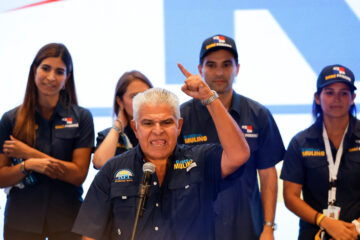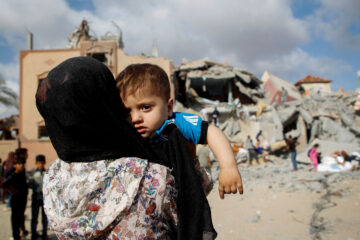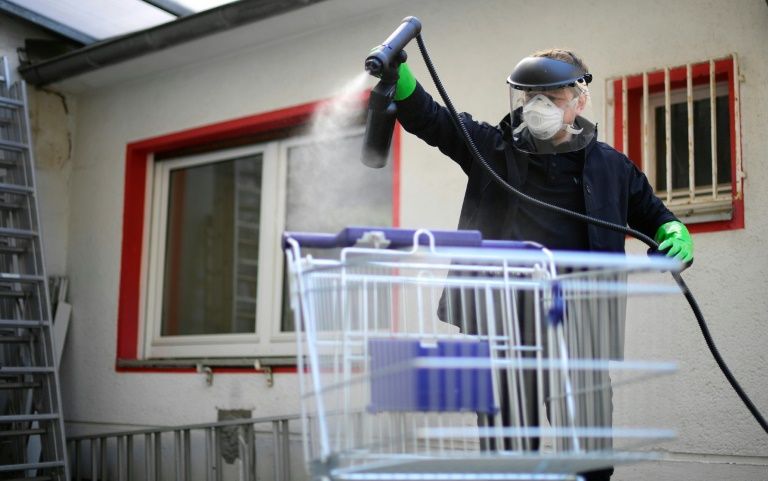Malian rebels sign landmark peace deal with government
Mali\’s Tuareg-led rebel alliance signed a landmark deal on Saturday to end years of unrest in a nation riven by ethnic divisions and in the grip of a jihadist insurgency.
The Algiers Accord aims to bring stability to the country\’s vast northern desert, cradle of several Tuareg uprisings since the 1960s and a sanctuary for Islamist fighters linked to Al-Qaeda.
The agreement had already been signed in May by the government and loyalist militias but the Coordination of Azawad Movements (CMA), a coalition of rebel groups, had been holding out until amendments were agreed.
Cheers broke out as Sidi Brahim Ould Sidati, a member of the Arab Movement of Azawad, put his name to the document on behalf of the CMA in a televised ceremony at a packed conference hall in the capital Bamako.
"Trust me — we will make sure that no one is disappointed. We will build a brotherly Mali together," President Ibrahim Boubacar Keita told an audience of northern community leaders and international sponsors.
"Today is a great day for all of us children of Mali."
Ramtane Lamamra, the foreign minister of Algeria, which has been leading international efforts to mediate the peace talks, hailed "a new beginning, a new opportunity and a new destiny for this great Malian nation".
The peace accord, hammered out over months under the auspices of the UN, calls for the creation of elected regional assemblies but stops short of autonomy or federalism for northern Mali, known by locals as Azawad.
The Malian government and several armed groups signed the document on May 15 in Bamako, in a ceremony spurned by the CMA.
The rebels finally agreed to commit on June 5 after winning a stipulation that its fighters be included in a security force for the north, and for residents of the region to be represented better in government institutions, among other concessions.
Mongi Hamdi, the head of MINUSMA, the United Nations peacekeeping mission in Mali, warned that there would still be "moments of doubt and discouragement, tensions and distrust" on the path to peace.
"The international community will always be with you but cannot make peace for you," he said, urging the opposing sides to show "good faith and goodwill" in implementing the accord.
Mali was shaken by a coup in 2012 that cleared the way for Tuareg separatists to seize towns and cities of the north, an expanse of desert the size of Texas.
Al-Qaeda-linked militants then overpowered the Tuareg, taking control of the region for nearly 10 months until they were ousted in a French-led military offensive.
The country remains deeply divided, with the Tuareg and Arab populations of the north accusing sub-Saharan ethnic groups in the more prosperous south of marginalising them.
Mali has attempted repeatedly over recent decades to bring stability to the north, but each agreement has foundered with the resumption of ethnic violence.
Mahamadou Djeri Maiga, a senior CMA spokesman, said international mediation efforts had "paid off" but warned that the hard work lay ahead.
"We are for peace, but what we want is that the agreement is actually implemented on the ground," he told AFP.
"Everyone must respect its commitments… We want peace, we don\’t want what has happened with previous agreements."
With most Malians fasting in daylight hours during the Muslim holy month of Ramadan, the rebels were due to dine with Keita at the presidential palace after nightfall, the presidency said.
French Defence Minister Jean-Yves Le Drian is due to travel to Bamako on Monday to support the peace agreement, a member of his entourage announced.
"He is going there to demonstrate the presence and support of France for the agreement, which is indispensible for the return of peace and development in Mali," the source said.
SOURCE: AFP
[do_widget_area inner_adsbar]











